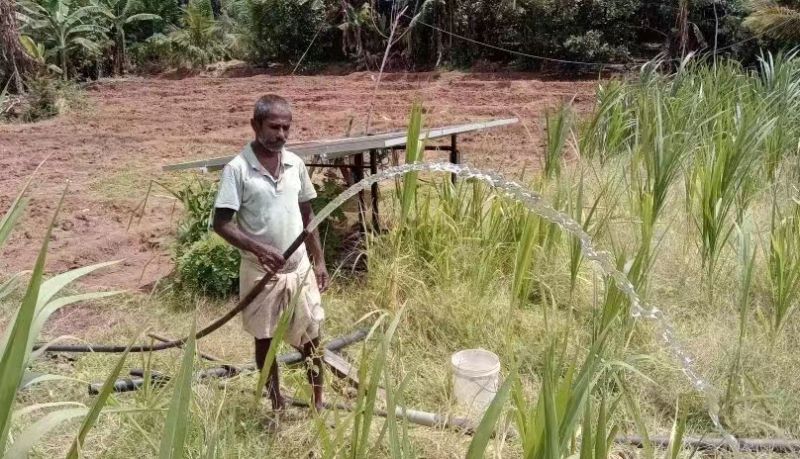African farmers are calling for better information and support in adopting solar pumps. These pumps have the potential to revolutionize agricultural practices in the region, but many farmers still don't know how to access and pay for the technology.

Solar pumps are an environmentally friendly and cost-effective alternative to traditional diesel or electric pumps. They use solar energy to power crop irrigation, providing farmers with a sustainable and reliable source of water. However, despite the potential benefits, many African farmers remain hesitant to adopt this technology due to a lack of knowledge and support.
“I’ve heard about solar water pumps, but I don’t know how to get one or how to pay for it,” said Alice Mwangi, a Kenyan farmer. “Farmers like me who want to improve their farming practices need better information and support.”
One of the major challenges faced by farmers is the lack of awareness about the availability of solar water pumps and how to use them. Many farmers are unaware of the various suppliers and financing options available to them. As a result, they are unable to make an informed decision about whether to invest in the technology.
Beyond this, there is a general lack of understanding of the long-term benefits of solar water pumps. Many farmers are unaware of the potential cost savings and environmental advantages of using solar irrigation systems.
To address these issues, a concerted effort is needed to promote solar water pumps and provide farmers with better information and support. This could include establishing education programs and workshops to educate farmers about the benefits of solar water pumps and how they can access and pay for them.
Greater collaboration is also needed between government agencies, non-profit organizations, and private sector companies to provide farmers with the resources and support they need to adopt solar water pumps. This could involve developing financing schemes and subsidies to make solar pumps more affordable for small farmers.
In addition to this, greater investment in research and development is needed to improve the efficiency and affordability of solar water pumps. This could lead to the development of more advanced, cost-effective technologies better suited to the needs of African farmers.
Overall, it is clear that African farmers need better information and support when it comes to adopting solar pumps. By addressing these challenges and providing farmers with the necessary resources and support, we can help unlock the full potential of solar irrigation systems and increase agricultural productivity in the region.
Post time: Jan-17-2024